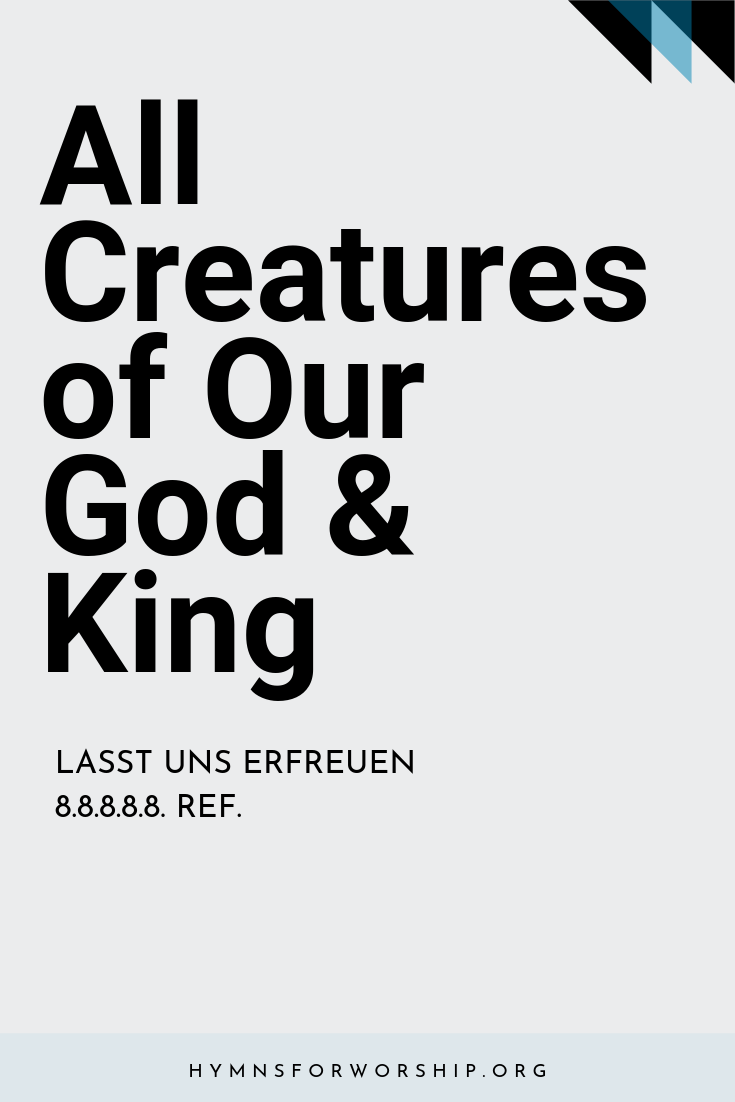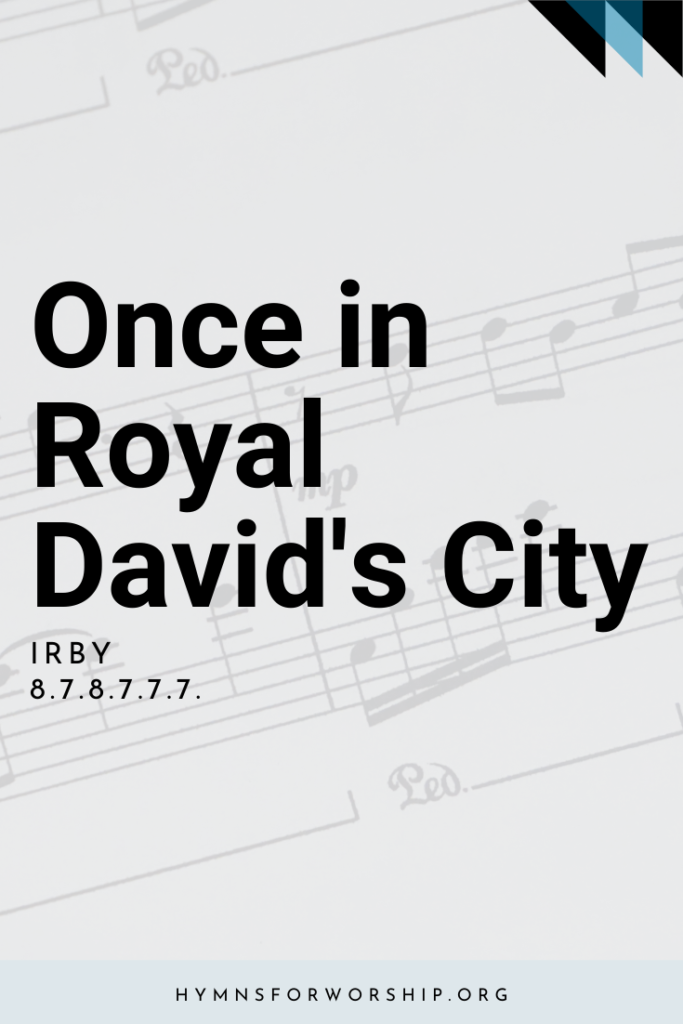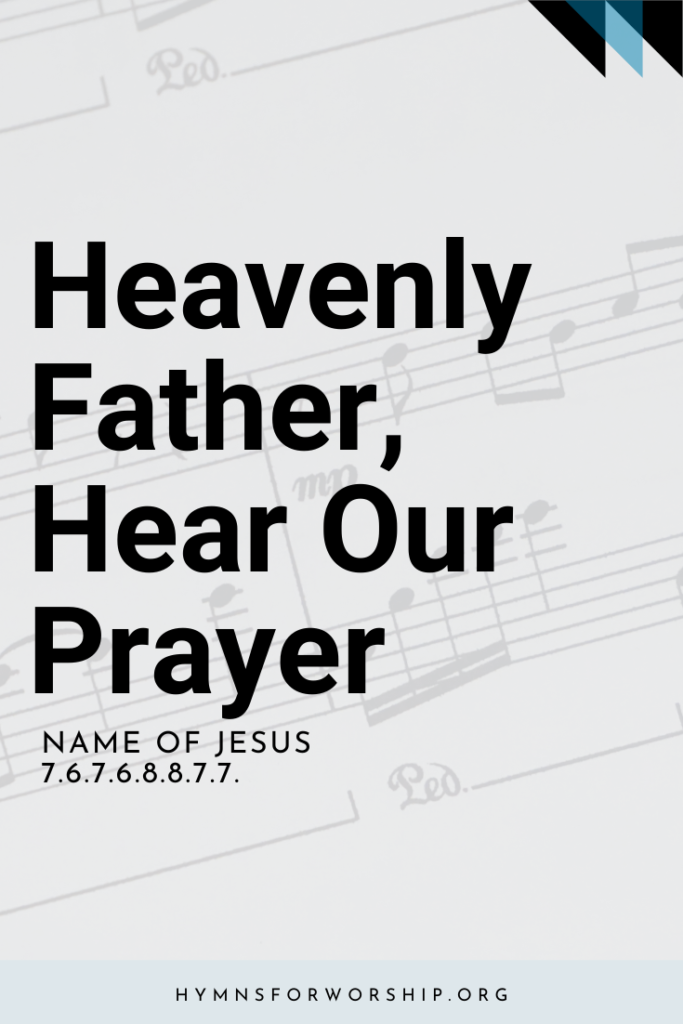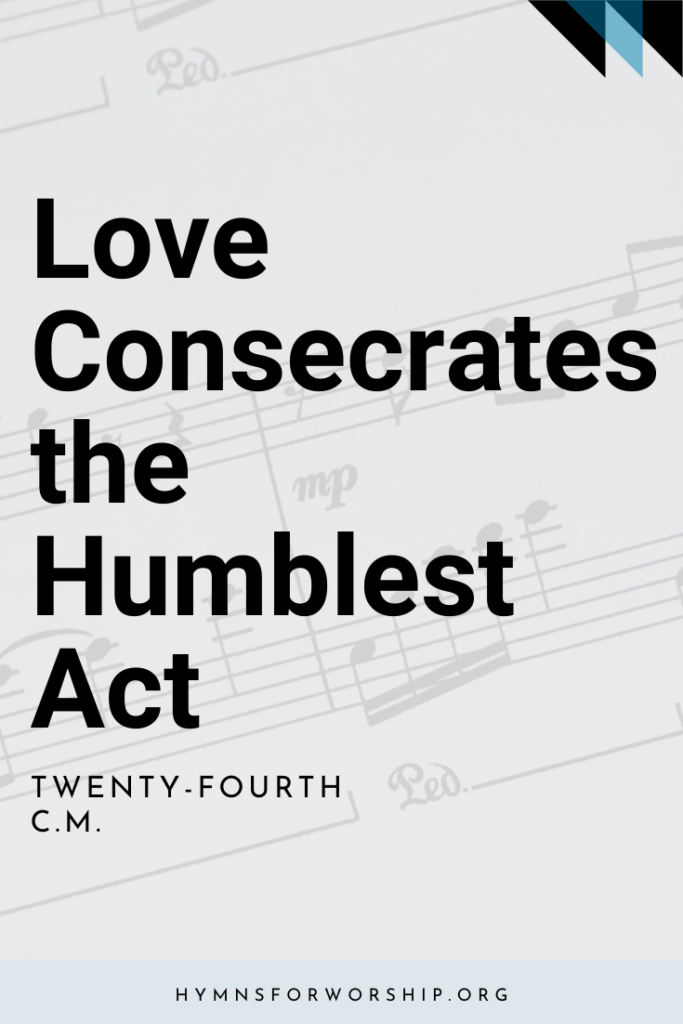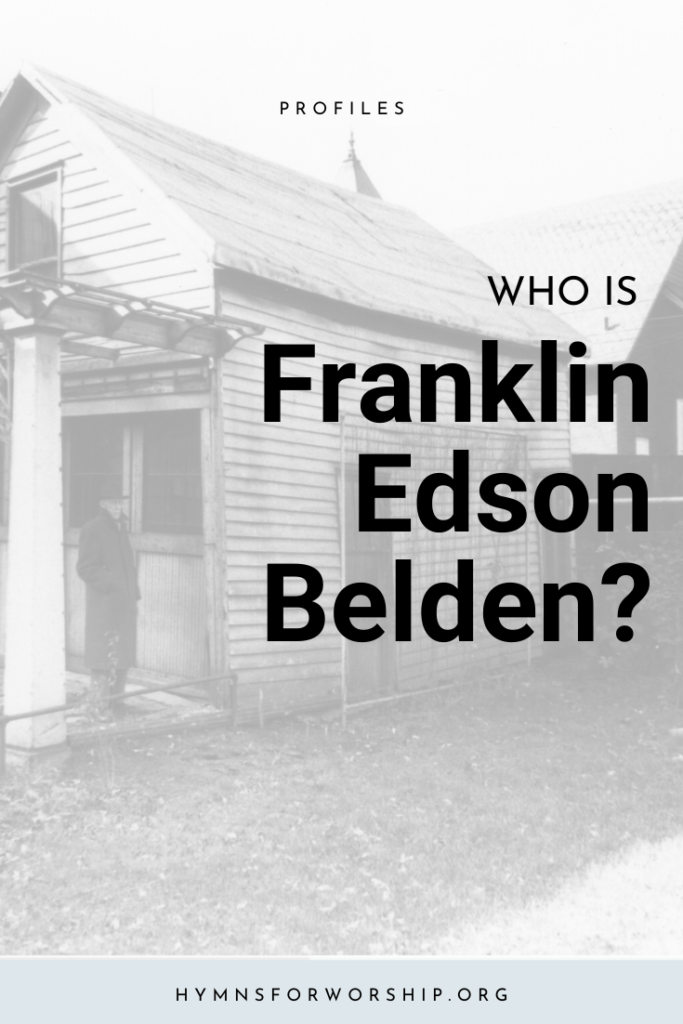WORSHIP >> ADORATION & PRAISE
SDAH 2
All creatures of our God and King
Lift up your voice and with us sing,
Alleluia! Alleluia!
O burning sun with golden beam
And silver moon with softer gleam!
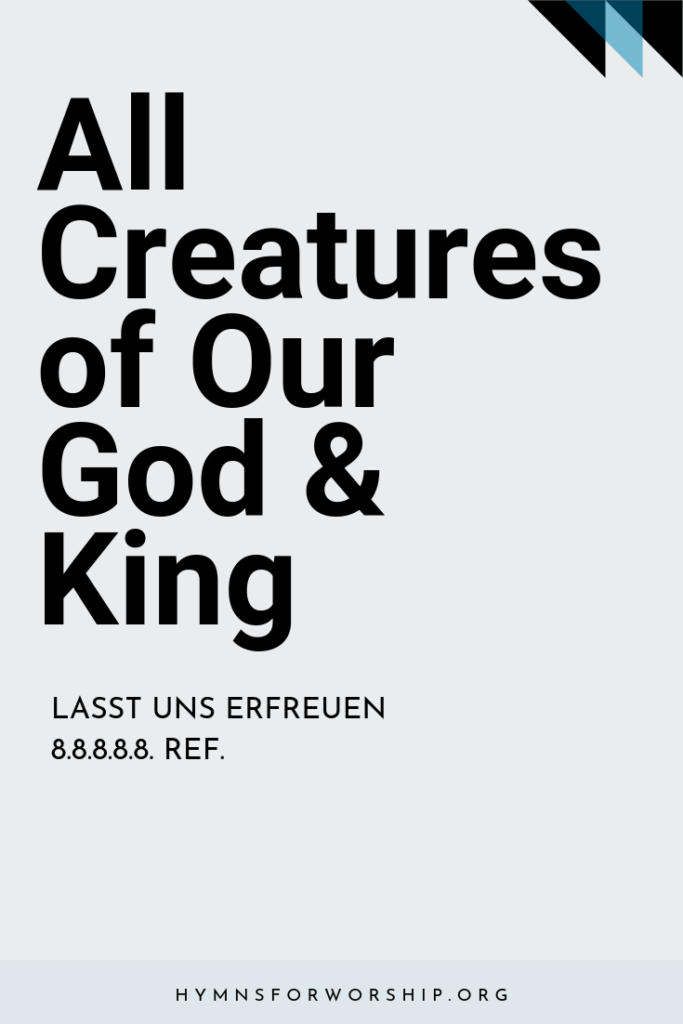

Text
1
All creatures of our God and King
Lift up your voice and with us sing,
Alleluia! Alleluia!
O burning sun with golden beam
And silver moon with softer gleam!
Refrain
O praise Him! O praise Him!
Alleluia! Alleluia! Alleluia!
2
O rushing wind and breezes soft,
O clouds that ride the winds aloft,
O praise Him! Alleluia!
O rising morn, in praise rejoice,
O lights of evening, find a voice!
3
O flowing waters, pure and clear,
Make music for your Lord to hear,
O praise Him! Alleluia!
O fire so masterful and bright,
Providing us with warmth and light.
4
Let all things their Creator bless,
And worship Him in humbleness,
O praise Him! Alleluia!
Oh, praise the Father, praise the Son,
And praise the Spirit, three in One!

Hymn Info
Biblical Reference
(a) Psalm 150:6, 148:3 (b) Psalm 148:8
Author
Francis of Assisi (1182-1226)
Paraphrase
William H. Draper (1855-1933)
Year Published
1225
Performance Suggestions
Unison
Copyright
Words copyright by J. Curwen & Sons, Ltd., Used by permission of G. Schirmer, Inc. Music from ‘The English Hymnal.’ Used by permission of Oxford University Press.
Hymn Tune
LASST UNS ERFREUEN
Metrical Number
8.8.8.8.8.Ref.
Arranger
Ralph Vaughan Williams, 1906 (1872-1958)
Tune Source
Geistliche Kirchengesange, Koln, 1623
Year Composed
1623; Arr. 1906
Alternate Key
SDAH 228
Theme
ADORATION & PRAISE
Hymn Score
Audio Guide
Notes
Willian Draper, an Anglican clergyman, wrote this splendid free papraphrase of the famous “Canticle to the Sun,” by Saint Francis of Assisi. Sometimes known as the “Song About Creatures,” it reflects the intense love of nature held by this humble Italian itinerant evangelist. “During the fierce summer heat of 1225, near the end of his life and almost blind, he lay prostrate and depressed at San Damiano Convent. He was unable to bear any light on his weak eyes, and incidentally plagued by a swarm of field mice who probably had their home in the straw walls of the hut and who eventually ran over his face, so that he had no peace day or night. And yet it was precisely in this wretched sickness that he composed his wonderful masterpiece” (Jorgensen, St. Francis of Assisi.)
The original poem had references to “our brother the sun,” “our sister the moon,” “our brother the wind,” and “our mother the earth,” praising God for all these and for clouds, fire, flowers of many colors, and grass. That such a glorious song of praise could come out of a time of pain speaks volume about this devote man and his lifelong relationship to his God. He was a forceful preacher and exerted an amazing influence everywhere he went. In his ministry, love was mingled with a sense of humor.
“God’s fugglers,” he called himself and his disciples. “It is not true,” he asked, “that the servant of God are really like jugglers, intended to revive the hearts of men and led them into spiritual joy?”
Francis Bernadone was born to wealthy parents in Assisi, Italy, in 1182, and was wayward in his youth. After a time of service in the army, he made a pilgrimage to Rome and then began a life devoted to religious work, with special concern for lepers and those who were poor. From 1207 to 1209 he worked to repair a forsaken monastery, St. May of the Porziuncula, just below Assisi. Unfortunately, to finance the repair he sold a wagonload of cloth from his father’s store, which brought a confrontation in court. He stripped off his expensive clothes, repudiated his family, and from then on wore a tattered coat as he went from place to place preaching. He attracted a following and formed a brotherhood that is to this day is known as the Franciscans. The order grew so large that he lost control, and rules were adopted that were far from his original concept. Disappointed, sick, and almost blind, he withdrew from leadership and retired to the hermitage at La Verna in 1224. He died October 3, 1226.
William Henry Draper wrote his version about 1910, especially for a schoolchildren’s Whitsuntide Festival at Leeds, England. Born December 19, 1855, at Kenilworth, Warwichshire, he was educated at Cheltenham and Keble colleges, Oxford. Ordained in 1880, He served several Anglican churches and published Hymns for Holy Week, 1889; The Victoria Book of Hymns, 1897; and Hymns for Tunes by Orlando Gibbons, 1925. He was master of the Temple in London from 1919 to 1930 and finally vicar of Axbridge, near Cheddar in Somerset, until his death at Clifton, Bristol, on August 9, 1933. He is noted for his translations of Latin and Greek hymns.
The tune LASST UNS ERFREUEN gets its name from the first line of the German Easter hymn “Lasst uns erfreuen herslich sehr” (Let Us Most Heartily Rejoice), according to the German custom of naming the tune by using the first line of the text. It first appeared in the book Geistliche Kirkengesänge, Cologne, 1623. Percy Dearmer (see SDAH 259) commented, “This now-famous tune is built altogether on a single musical unit of four notes by imitations and inversions. It is a remarkable example not only of economy of structure but of the accumulating force of repetition— when the repeated phrase, as here, is strong enough to bear it.” The arrangement is by Ralph Vaughan Williams (1872-1958; see Biographies). The tune is used again in a higher key at SDAH 228, “A Hymn of Glory Let Us Sing,” and SDAH 91, “Ye watchers and Ye Holy Ones.”

